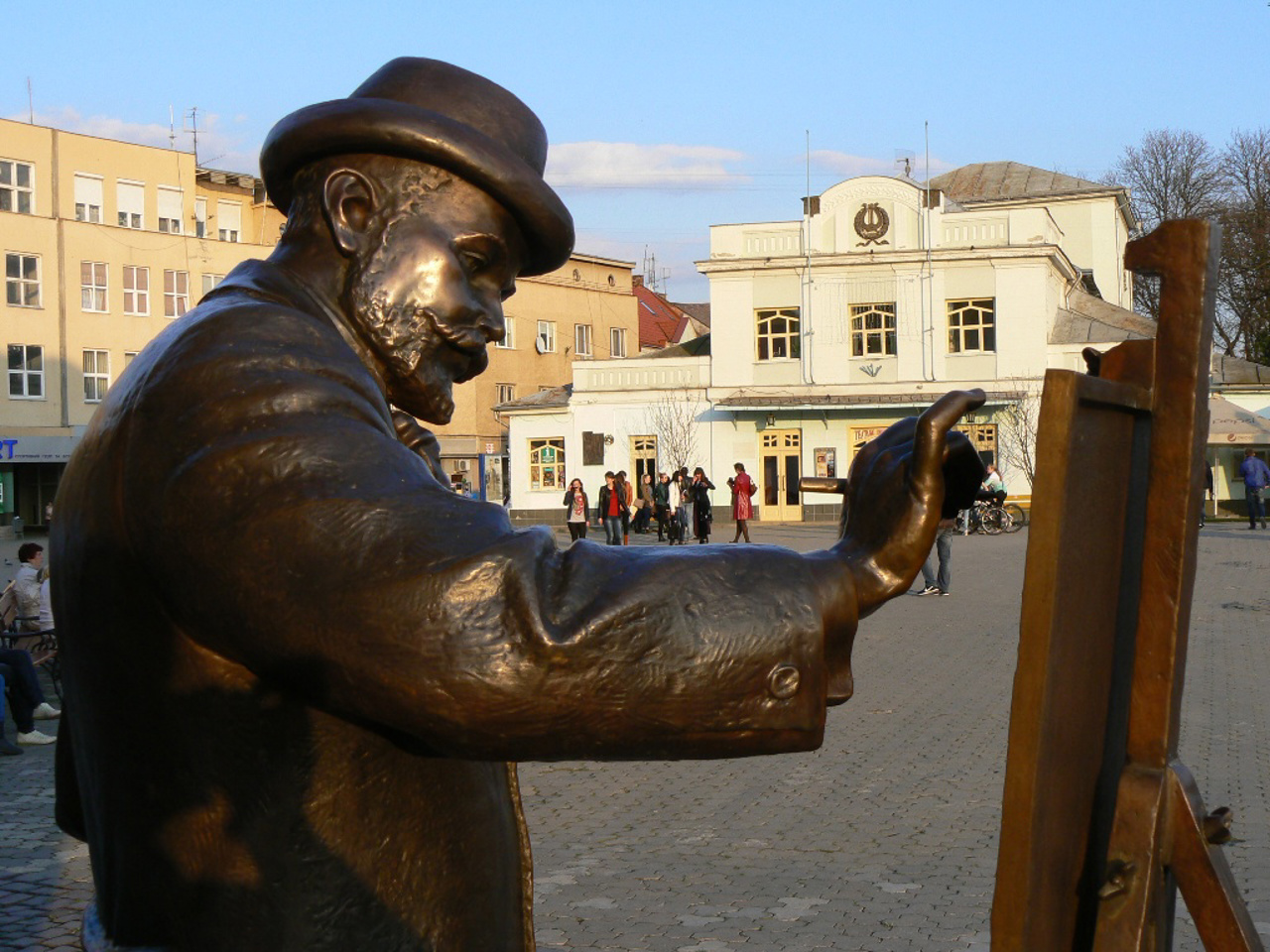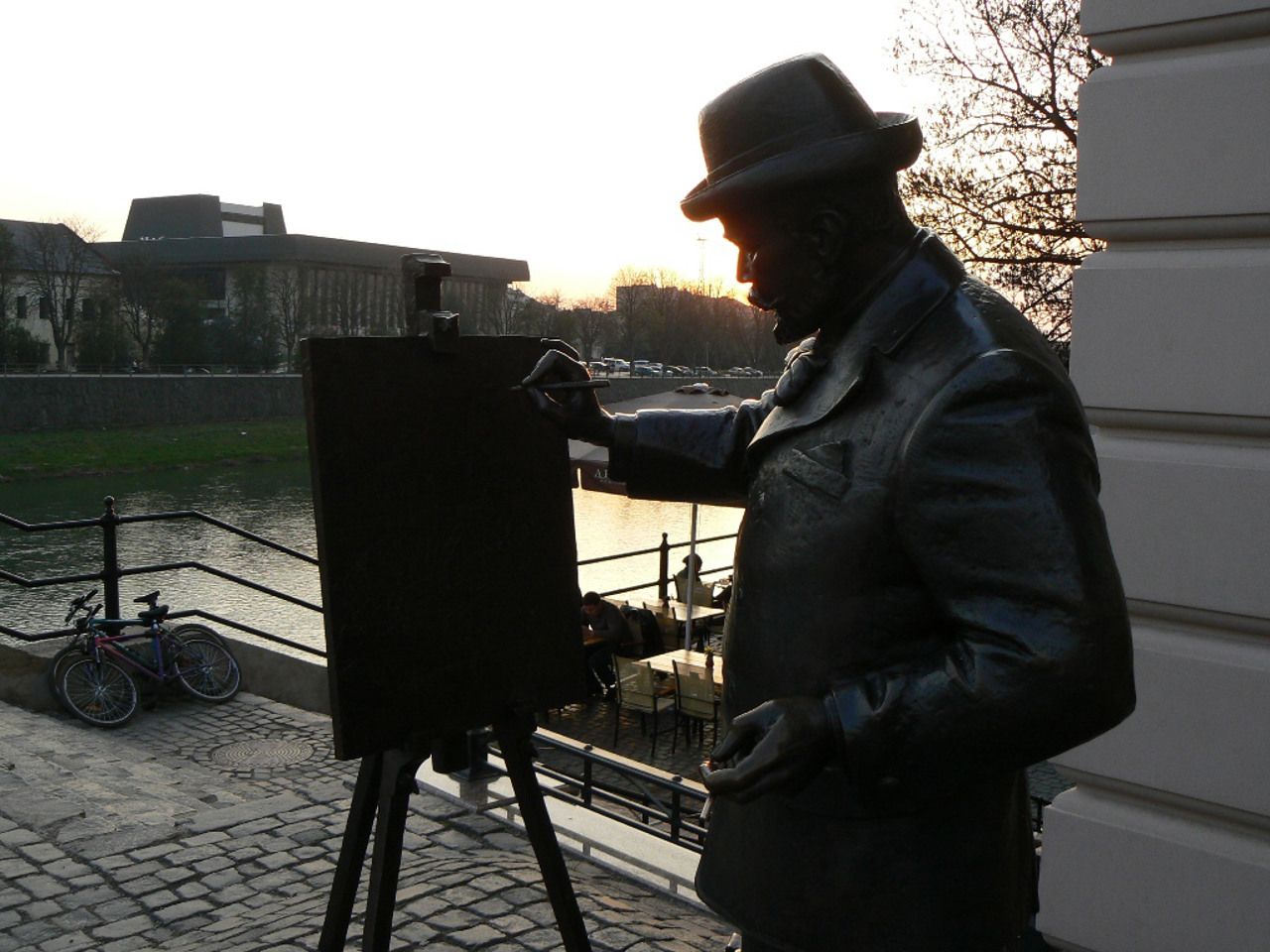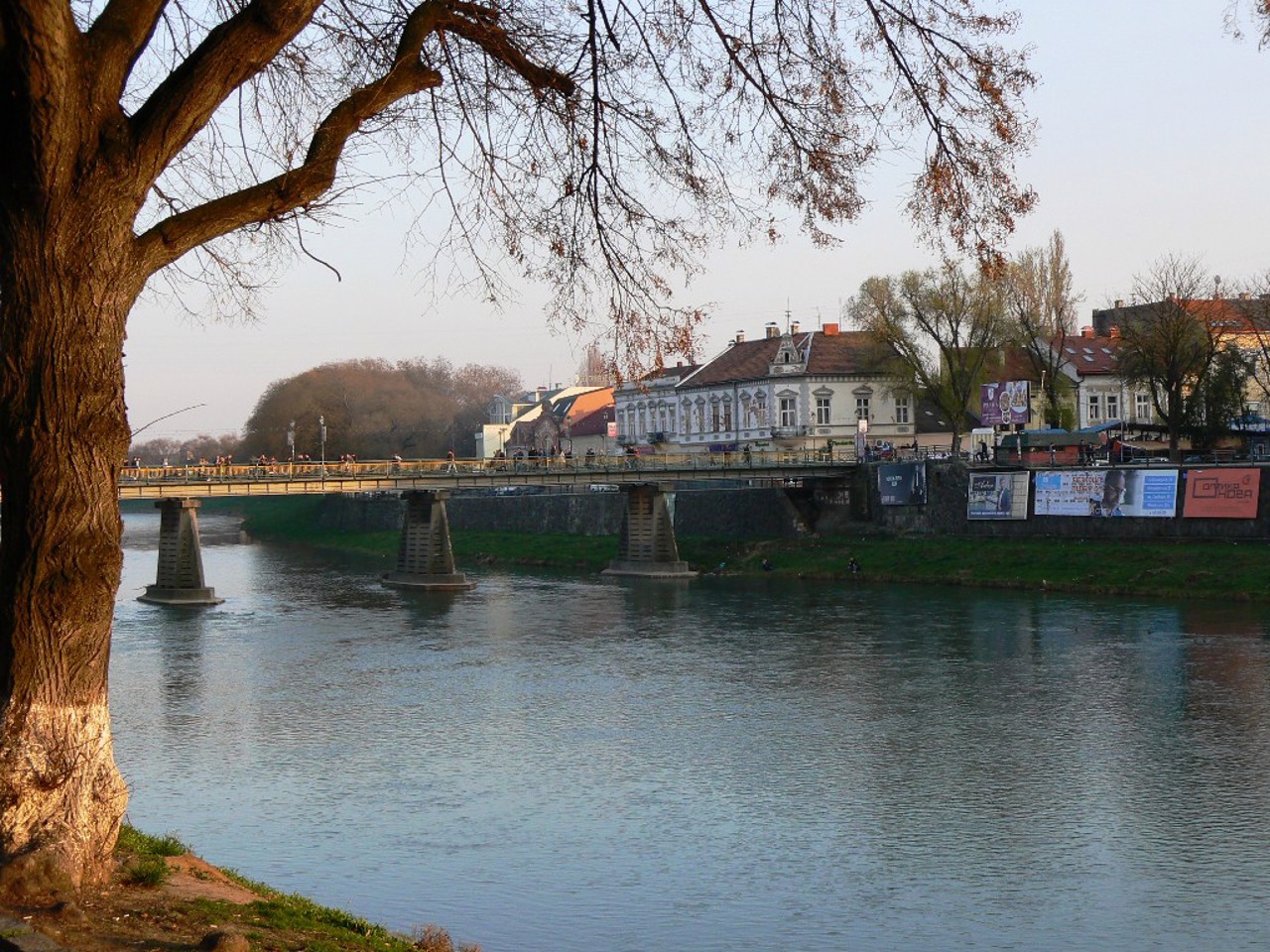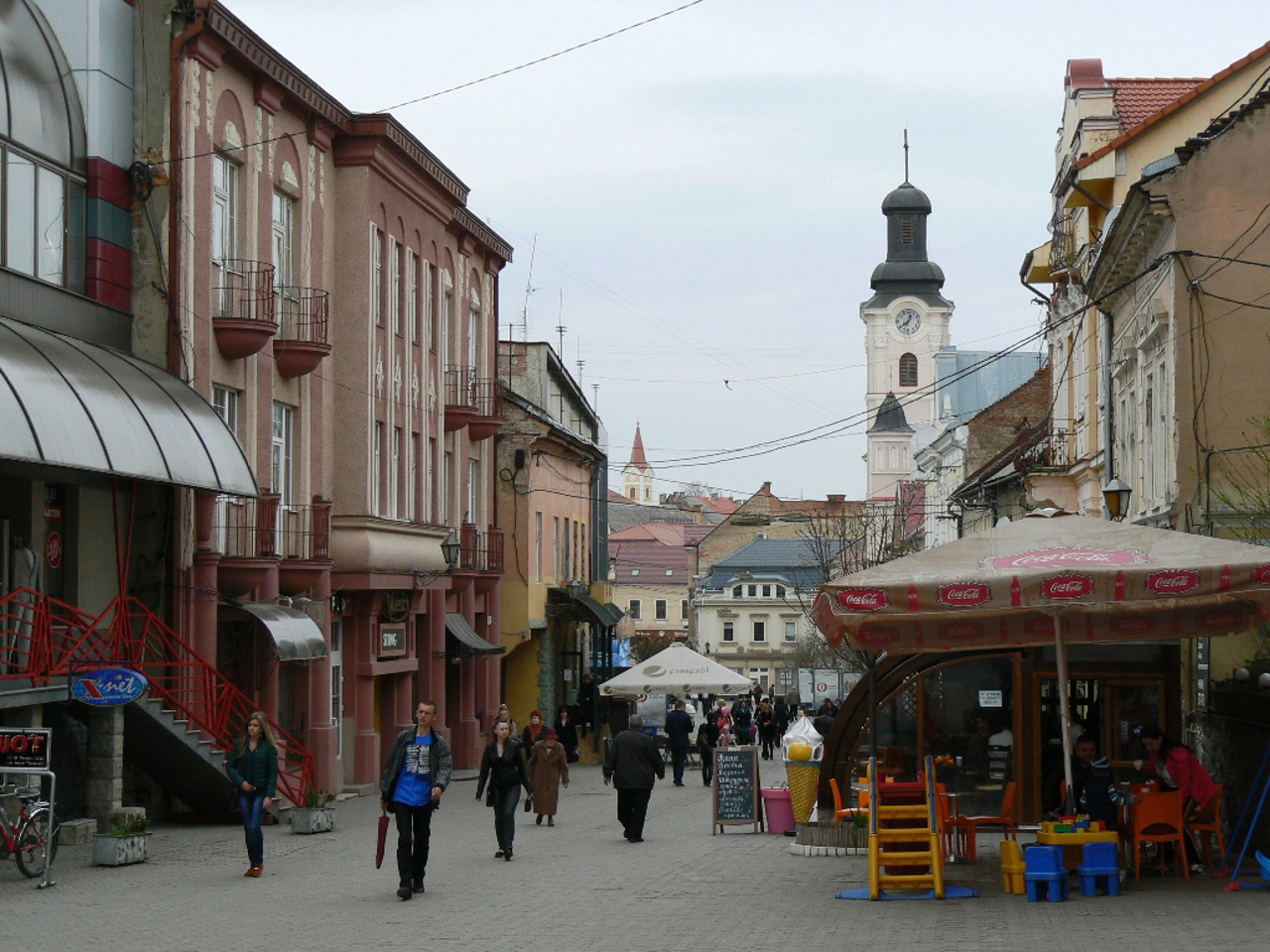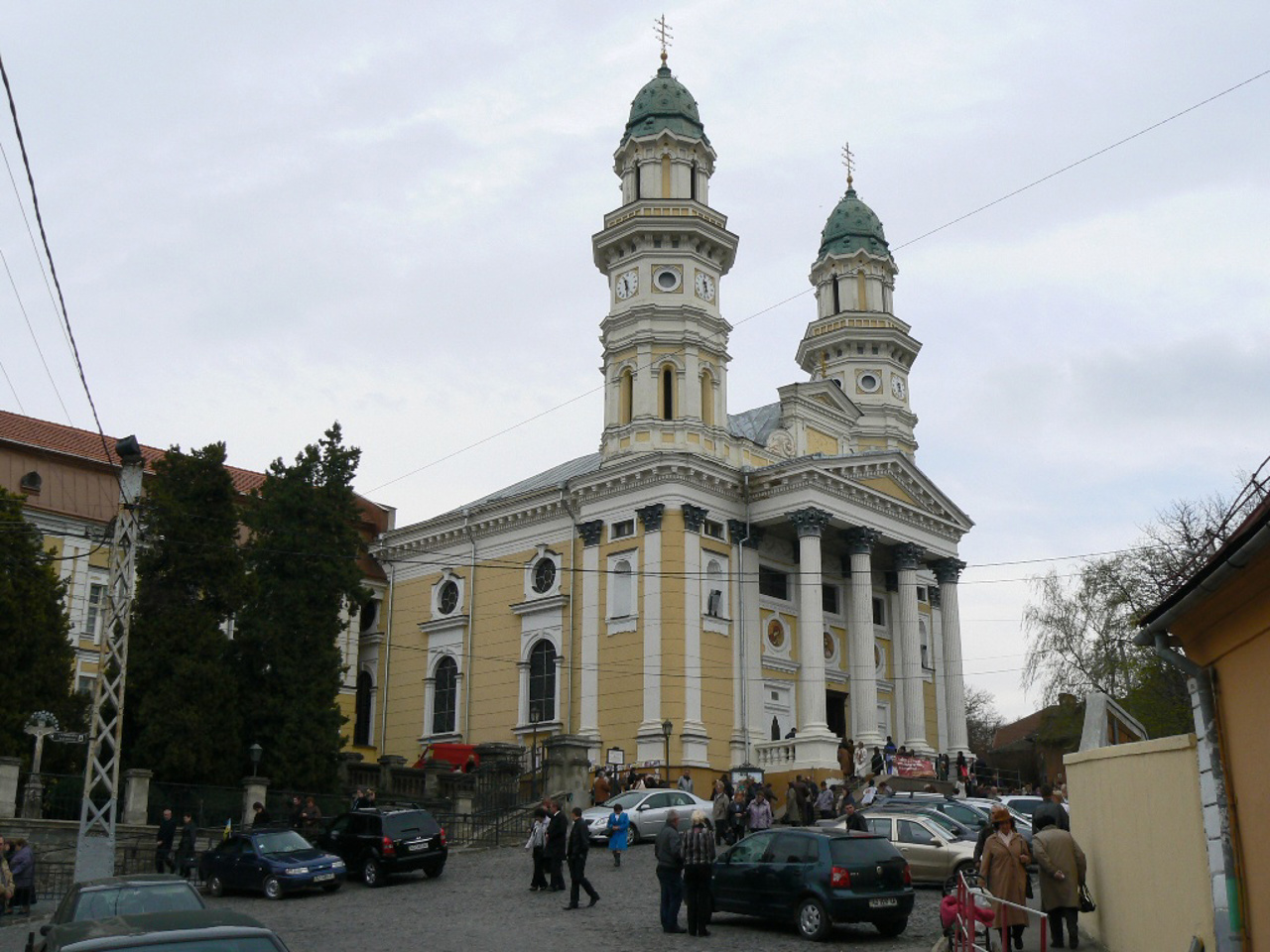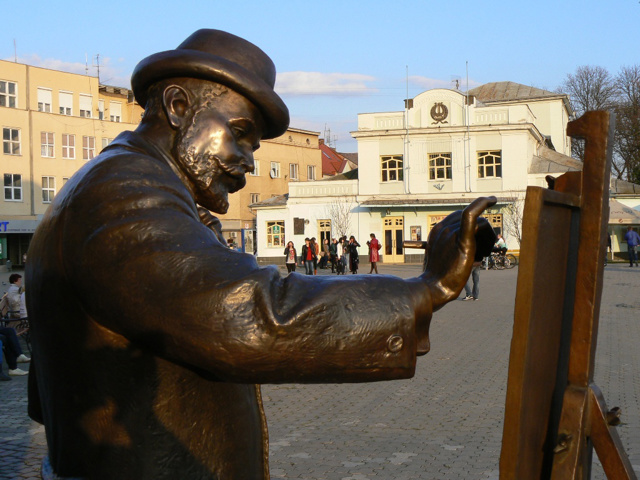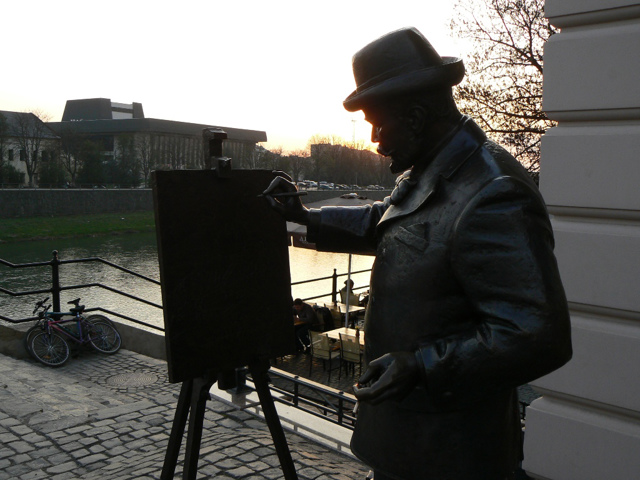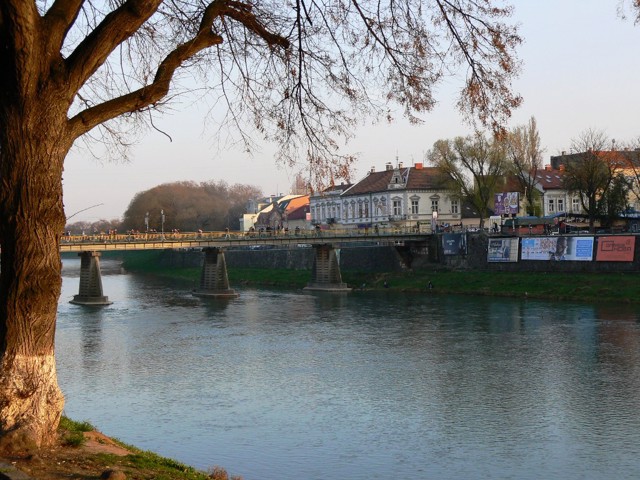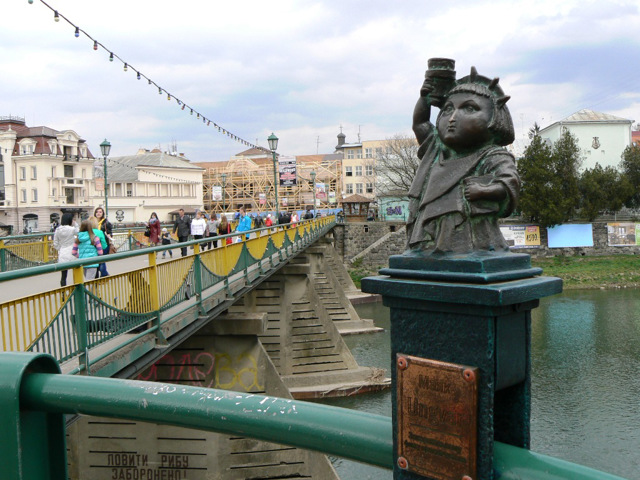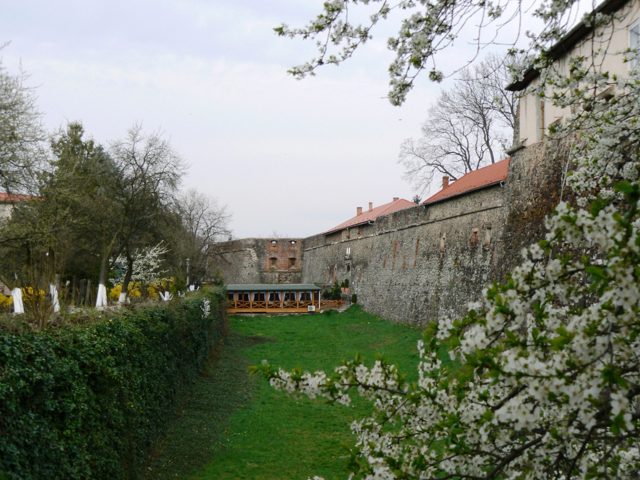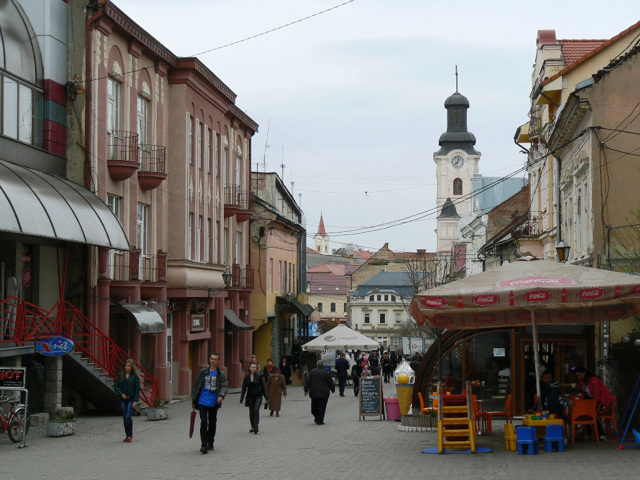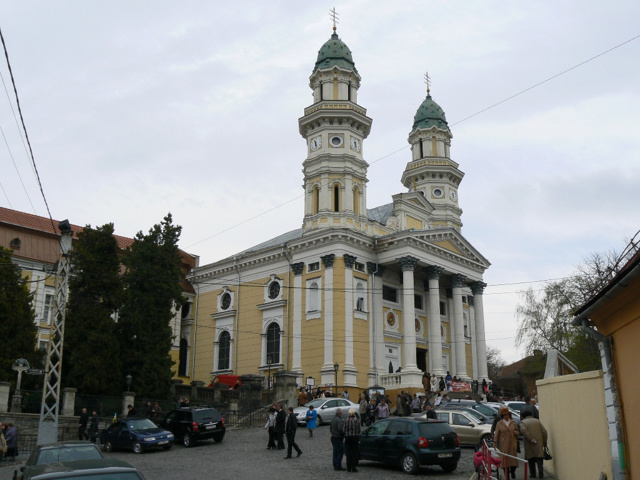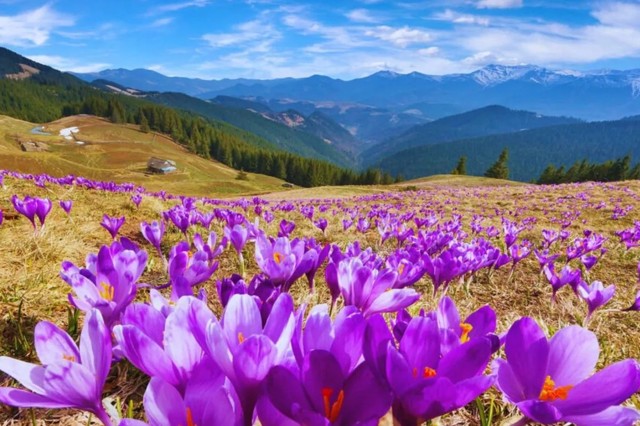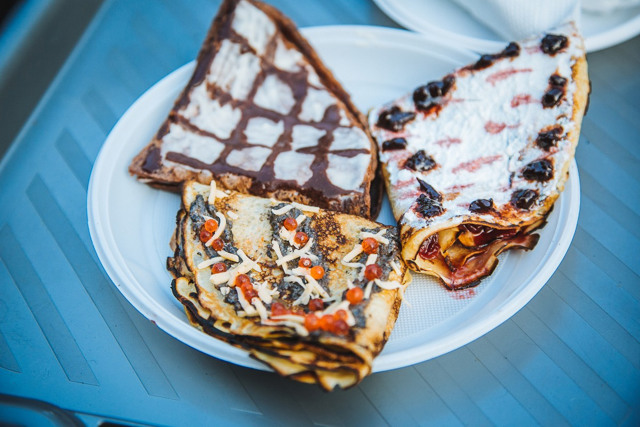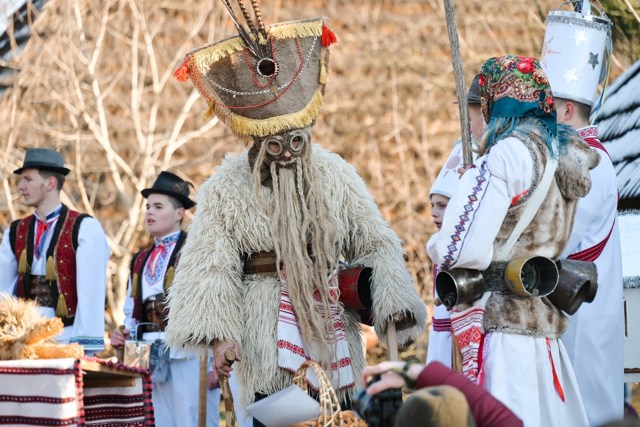Functional temporarily unavailable
General information about Uzhhorod
Uzhhorod is the westernmost city of Ukraine, the main "land gateway" to Europe, a convenient transit point for foreign trips.
Chronicles mention Uzhhorod from 872. The name comes from the Uzh River, which flows through the city. At different times it was also called Ung, Ongvar, Gungvar, Unguivar, Ungvar.
The formation of the early medieval city occurred in the 11th century, when the legendary prince of the Slavic tribe of White Croats Laborets founded the capital of the Subcarpathian principality here. In the XI-XIII centuries, Uzhhorod was the property of the Hungarian kings. After the Mongol-Tatar invasion, it was restored and controlled by local feudal lords, until it became the property of the Italian Counts Druget for 360 years. During this period, the ...
Uzhhorod is the westernmost city of Ukraine, the main "land gateway" to Europe, a convenient transit point for foreign trips.
Chronicles mention Uzhhorod from 872. The name comes from the Uzh River, which flows through the city. At different times it was also called Ung, Ongvar, Gungvar, Unguivar, Ungvar.
The formation of the early medieval city occurred in the 11th century, when the legendary prince of the Slavic tribe of White Croats Laborets founded the capital of the Subcarpathian principality here. In the XI-XIII centuries, Uzhhorod was the property of the Hungarian kings. After the Mongol-Tatar invasion, it was restored and controlled by local feudal lords, until it became the property of the Italian Counts Druget for 360 years. During this period, the current castle was built, and city construction began. The city was repeatedly destroyed during the Habsburg wars with the Principality of Transylvania. In 1707, Ferents II Rakotsi, the leader of the National Liberation War of the Hungarian people, had his residence here. Until the beginning of the 20th century, Uzhhorod was under the rule of the Austrian Empire, in 1919-1938 it was part of Czechoslovakia. During the Soviet rule (1944-1991), Ukrainians became the dominant nationality, supplanting Hungarians.
The historical center of Uzhhorod is well preserved. At the beginning of the 21th century, the city embankment was planted with sakura (Japanese cherry), which bloom in early May.
Uzhhorod City Day is celebrated on the first Sunday of October.
Ужгород - найзахідніше місто України, головна "сухопутня брама" в Європу, зручний перевалочний пункт для зарубіжних поїздок.
Літописні згадки про Ужгород починаються з 872 року. Назва походить від річки Уж, яка протікає через місто. В різні часи називалося також Унг, Онгвар, Гунгвар, Унгуйвар, Унгвар.
Становлення ранньосередньовічного міста припало на XI століття, коли легендарний князь слов'янського племені білих хорватів Лаборець заснував тут столицю підкарпатського князівства. В XI-XIII століттях Ужгород був власністю угорських королів. Після монголо-татарської навали був відновлений і контролювався місцевими феодалами, поки не перейшов на 360 років у власність італійських графів Другетів. У цей період виник нинішній замок, почалося міське будівництво. Місто ...
Ужгород - найзахідніше місто України, головна "сухопутня брама" в Європу, зручний перевалочний пункт для зарубіжних поїздок.
Літописні згадки про Ужгород починаються з 872 року. Назва походить від річки Уж, яка протікає через місто. В різні часи називалося також Унг, Онгвар, Гунгвар, Унгуйвар, Унгвар.
Становлення ранньосередньовічного міста припало на XI століття, коли легендарний князь слов'янського племені білих хорватів Лаборець заснував тут столицю підкарпатського князівства. В XI-XIII століттях Ужгород був власністю угорських королів. Після монголо-татарської навали був відновлений і контролювався місцевими феодалами, поки не перейшов на 360 років у власність італійських графів Другетів. У цей період виник нинішній замок, почалося міське будівництво. Місто неодноразово руйнувалося під час воєн Габсбургів з Трансильванським князівством. У 1707 році тут була резиденція лідера національно-визвольної війни угорського народу Ференца II Ракоці. До початку XX століття Ужгород був під владою Австрійської імперії, в 1919-1938 роках входив до складу Чехословаччини. За радянської влади (1944-1991 роки) українці стали домінуючою національністю, потіснивши угорців.
Історичний центр Ужгорода добре зберігся. На початку XXІ століття набережна міста була засаджена сакурами (японська вишня), які цвітуть на початку травня.
День міста Ужгорода відзначають в першу неділю жовтня.
Сплануй своє перебування у Uzhhorod
What to see and where to go in Uzhhorod
Tourist attractions and museums of Uzhhorod
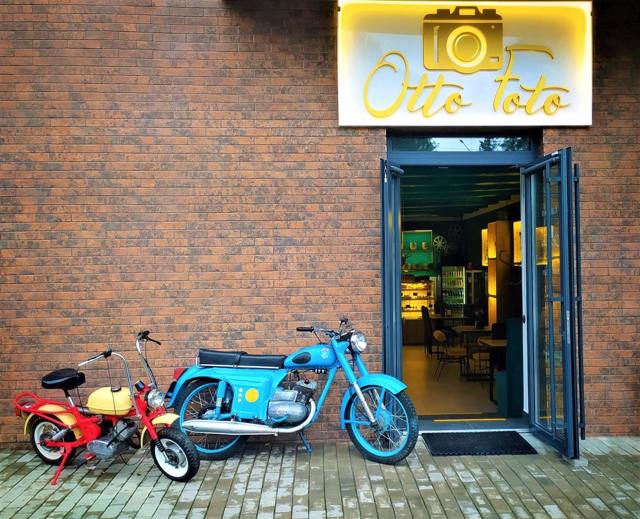
"OttoFoto" Photo Museum Cafe
Museum / gallery , Entertainment / leisure
Photo museum cafe "OttoFoto" was opened in Uzhhorod in 2023 by the wife of the famous Uzhhorod collector Attila Runyanin Kseniya. The collection was formed and replenished for about 7 years and now includes more than half a thousand different cameras and more.
About three hundred cameras, two motorcycles and about one hundred rarities are presented in the cafe-photo museum "OttoFoto". The exposition of the cafe mainly consists of cameras of Soviet, European and American production since 1920. There are also other old things here: a gramophone, a Soviet radio, a landline telephone that was used in the last century, various antiques.
Photo exhibitions, workshops and creative meetings can be held in the coffee shop.
"OttoFoto" is located in the central part of the city, not far from Koryatovycha Square.
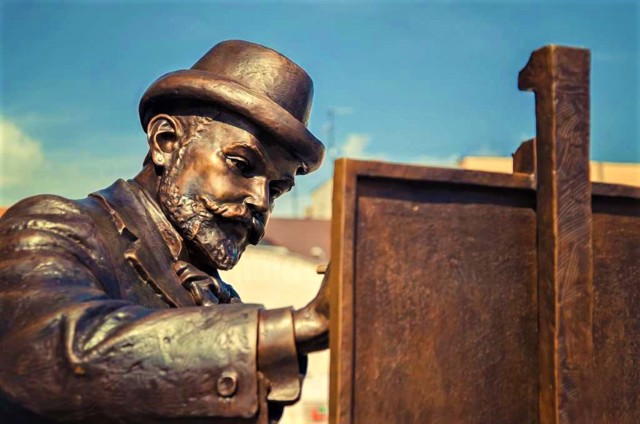
Artist Ihnatiy Roshkovych Monument
Monument
A monument to the Transcarpathian artist Ihnatiy Roshkovych in Uzhhorod is located on the embankment, which used to bear his name, next to the pedestrian bridge.
At the end of the 19th and the beginning of the 20th century, Roshkovych became famous for his sacred paintings of many churches in Europe, in particular. St. Stephen's Basilica in Budapest and the Transfiguration Church in Uzhhorod.
Sculptor Mykhaylo Kolodko depicted the artist at work on the cityscape of Uzhhorod with the embankment and the bridge over the river. Moreover, the bridge in the picture looks as it was during Roshkoviych's time.
A similar monument will be erected in Budapest.
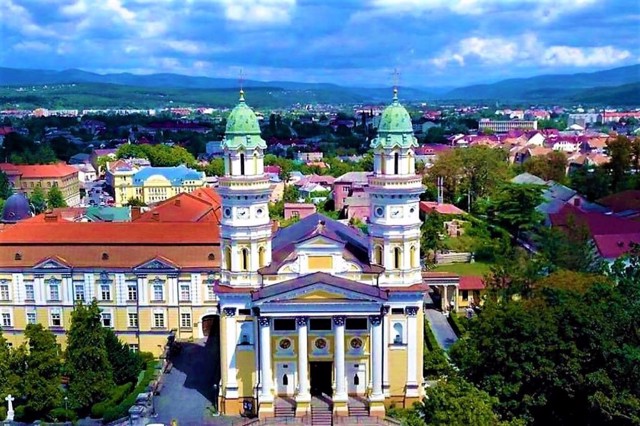
Cross and Exaltation Cathedral
Temple , Architecture
The Cross and Exaltation Greek-Catholic Cathedral has long been the main Christian temple of Uzhhorod.
The initiator of its creation in 1640 was Count Yanosh X Druhet, who invited Jesuit monks for this purpose. Construction was carried out for 6 years. After the liquidation of the Jesuit order in 1773, the Cross and Exaltation Cathedral was transferred to the Greek Catholic diocese. In 1779, Bishop Andriy Bachynsky rebuilt it in the Baroque style according to the Eastern rite. The church acquired its current forms, combining classicism and neo-baroque, after the reconstruction in 1878.
Rococo-style interiors are painted by Transcarpathian artists. Many religious figures are buried in the crypts, including Bishop Teodor Romzha, who was killed by the Soviet special services.
In 1991, the Cross and Exaltation Cathedral was returned to the Greek Catholics.
Nearby is the former episcopal residence, in which the first Transcarpathian higher education institution - the Jesuit college - was opened. Until recently, the library of the Uzhhorod State University was located here, but now the building has been returned to the church. Restoration is in progress, the opening of the diocesan museum is planned.
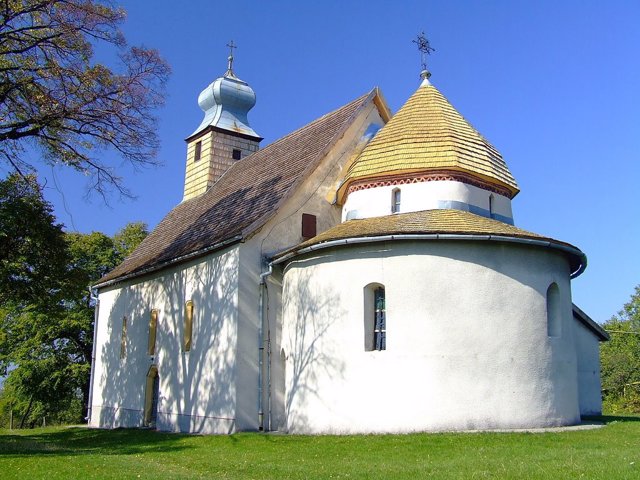
Horyanska Rotunda
Temple , Architecture
The Horyanska Rotunda (Church of Saint Anna) in Uzhhorod is the oldest temple in Transcarpathia, a unique monument of Romano-Byzantine architecture, in which experts see features of Great Moravian architecture.
The most probable time of construction is considered to be the 13th century, but there are also earlier datings - up to the 10th century. The rotunda temple in Horyany is made in the shape of a hexagon with powerful walls 2-2.5 meters thick and narrow windows, made of bricks similar to the ancient Rus plinth. Probably, the church of Saint Anna was the chapel of the fortified castle and performed defensive functions.
According to legend, the Horyanska Rotunda was built by Princess Gragissa, who owned the Horyansky Castle in the 13th century. When the castle was captured by the tycoon Matush Chuck Trenchynsky, escaping from dishonor, Gragissa went forever to the castle dungeons, where her soul still awaits release.
In the 15th century, the nave of the Nicholas Church was attached to the rotunda.
The frescoes created in 1360-1370 by Italian masters of the Giotto school have been preserved inside the Horyanska Rotunda. On the eastern wall of the nave there are paintings of the 15th century, executed in the "sal secco" technique in the manner of the Tyrolean and Czech schools of painting.
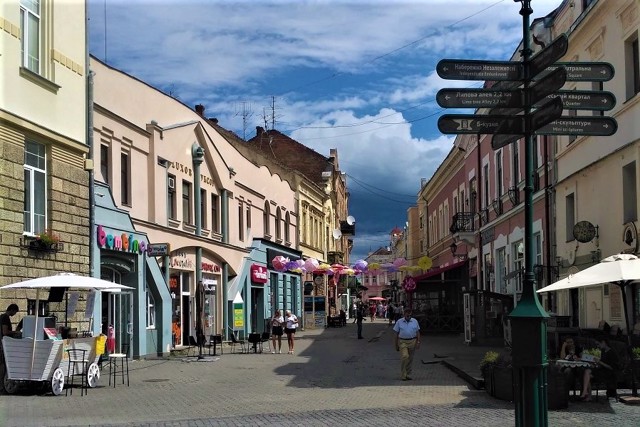
Korzo Street
Historic area
The cobbled pedestrian street Korzo in the center of Uzhhorod connects Koryatovycha Square with Avhustyna Voloshyna Street.
Translated from Italian, "corso" means "place for walks". The name given to the street by the Druhets, the former owners of the city, is justified even now. This is a favorite place for walks of the citizens and guests of Uzhhorod - there are many cafes and shops, the facades of the old buildings have been restored, and the city services carefully maintain cleanliness.
Uzhhorod in news and blogs
Reviews Uzhhorod
Geographical information about Uzhhorod
| {{itemKey}} | {{itemValue}} |
|---|---|
| Region |
Zakarpattia |
